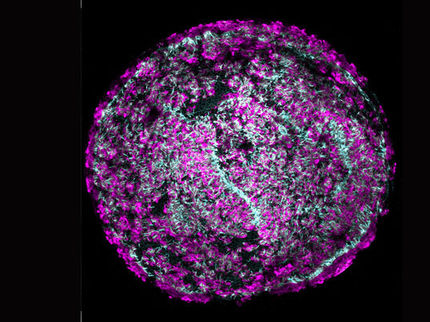The last checkpoint to T cell fate
Advertisement
A research team in Japan has linked a developmental checkpoint in the differentiation of hematopoietic progenitors into specific T cell lineages to the activity of a single gene encoding a transcription factor. Reported in Science this week, the discovery lends support to a new model for the development of blood cells lineages.
While varying widely in function, all blood cells share a common origin in progenitors known as hematopoietic stem cells (HSC). In textbook theory, HSCs branch early on into two progenitor cell types, one of which, known as the common lymphoid progenitor (CLP), later differentiates into T and B cells. According to this model, T and B cells lose the potential to develop into non-lymphocytes (myeloid cells) once they pass the CLP branching point.
In a model put forth nearly ten years ago, the researchers proposed a radically different picture in which progenitor cells retain the potential to generate myeloid cells across all branches of development. In the current research, the researchers sought to substantiate this theory by pinpointing the moment at which T cell progenitors lose the potential to develop into myeloid cells, a key step in determining cell fate.
In experiments with mouse HSCs cultured on immobilized delta-like 4 proteins, the researchers found that progenitors developing toward T cells were arrested in the absence of so-called feeder cells, which support survival and growth. The arrested cells then entered a cycle of self-renewal in which they replicated but did not further develop. Testing of various conditions revealed that reduction of the cytokine interleukin-7 (IL-7), possibly corresponding to an environmental signal in the thymus, triggered resumption of development and differentiation into T cells.
Placing the final piece in the puzzle, the researchers discovered that T cell progenitors in the thymus from mice deficient in the gene Bcl11b exhibited the same halted development and self-renewal cycle, while further experiments connected up-regulation of the transcription factor encoded by this gene to IL-7 levels. Together, the findings identify Bcl11b as a “master gene” governing the final step toward differentiation into T cells, confirming the proposed model and heralding a paradigm shift in our understanding of blood cell lineages.
Other news from the department science

Get the life science industry in your inbox
By submitting this form you agree that LUMITOS AG will send you the newsletter(s) selected above by email. Your data will not be passed on to third parties. Your data will be stored and processed in accordance with our data protection regulations. LUMITOS may contact you by email for the purpose of advertising or market and opinion surveys. You can revoke your consent at any time without giving reasons to LUMITOS AG, Ernst-Augustin-Str. 2, 12489 Berlin, Germany or by e-mail at revoke@lumitos.com with effect for the future. In addition, each email contains a link to unsubscribe from the corresponding newsletter.


























































